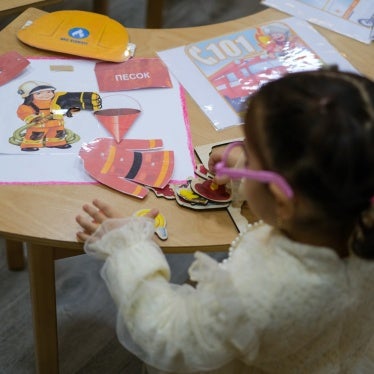NEW YORK Victims around the world look to the UN Commission on Human Rights to investigate serious human rights violations and generate pressure to stop them. But in recent years the commission has become a casualty of its own success.
Stung by its criticisms, abusive governments have flocked to the commission in the hope of dampening its voice. Governments in Africa, Asia and the Middle East have elected commission members who increasingly resemble a club of outlaws, dedicated to protecting themselves from scrutiny rather than upholding human rights standards. This woeful evolution reached a new nadir during the session of the commission that closed on April 26 in Geneva.
For the past two years Russia has flouted the commission's recommendations for curbing atrocities in Chechnya, so this year, instead of raising the ante, the commission voted to stop criticizing Russia.
Hard-line elements in Iran are intensifying repression of reformists, so the commission voted to end scrutiny of Tehran.
China's oppression has heightened in the face of growing popular discontent, so the commission didn't even propose condemning Beijing.
Efforts to criticize Zimbabwe and Equatorial Guinea also failed. Resolutions were adopted condemning killings by Israel but saying little about suicide bombings by Palestinians. UN human rights investigators were reduced to token five-minute reports of their findings, while obscure visiting "dignitaries" were permitted to drone on.
Increasingly, what is at stake is not simply the credibility of the commission but the very tool of naming and shaming - the powerful process of stigmatizing governments that flout international standards. Instead, a rogue's gallery increasingly convinces a commission majority to opt for silence and indifference. No abuse, in the eyes of these governments, is too big to be ignored.
Behind this assault on human rights enforcement is a virtual Who's Who of human rights violators, including Algeria, Burundi, China, Cuba, the Democratic Republic of Congo, Indonesia, Kenya, Libya, Malaysia, Nigeria, Saudi Arabia, Sudan, Syria, Togo and Vietnam. All have been voted full members of the commission.
The European Union sometimes stood up to this Abusers' Defense Society, but its opposition was inconsistent and often halfhearted. Shamefully, no EU government on the commission introduced a resolution on China. For Austria, Belgium, Britain, France, Germany, Italy, Portugal, Spain and Sweden, the visions of Chinese contracts were too strong to keep in mind the plight of Chinese victims.
The EU also increasingly tried to replace resolutions condemning an abusive government with watered-down consensus statements to which even the targeted government would agree. When these efforts went nowhere, as occurred with Chechnya and Iran, it left insufficient time to rally support for a more critical approach.
The United States was no better. A year ago it was voted off the commission for the first time, in part for its own inconsistent support for human rights. This year, lobbying from the sidelines, it predictably pressed for (and secured by a single vote) critical resolutions on Cuba and Sudan. But when it should have been campaigning for resolutions on Chechnya or China, it spent its energy undermining positive initiatives, such as a proposed treaty to inspect detention centers where torture occurs and a proposed resolution to prevent the war on terrorism from serving as a pretext for repression.
Yet all is not bleak. Latin America, with its fresh memories of repressive rule, increasingly supported human rights initiatives. Mexico under President Vicente Fox especially stood out.
Moreover, the commission's see-no-evil majority is a thin one. The resolutions on Chechnya and Iran failed by a single vote. Human rights proponents prevailed on the torture investigation treaty, new instructions for protecting gays and lesbians from summary execution, and a proposal to draft a new treaty on "disappearances."
But the commission is at a dangerous moment. To break the abusers' grip, Europe, the United States and other democracies must take a far more principled stand. A useful step would be to begin lobbying throughout the year for hard-hitting resolutions rather than make feeble efforts at the last minute.
All governments which elect commission members should adopt rules that exclude at least the worst offenders - those whose records the commission has condemned, which have failed to implement commission recommendations, or which have refused to allow visits by commission investigators.






